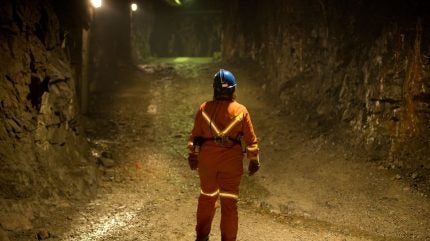Ministers and oil industry chiefs are gathering for the biggest energy conference in the Middle East as crude heads toward $100 a barrel. Whether prices can hold at these levels and the outlook for OPEC+ supply cuts are among topics that will be discussed from Monday.
But this year, climate is looming large over the forum. Delegates at the annual Adipec summit in Abu Dhabi, which has been dominated by oil in its long-running history, will devote a lot of their time to the energy transition. The meeting comes just two months ahead of the United Arab Emirates also hosting the crucial COP28 conference.
All times UAE
Oil Firms Must Be Heard in COP28, Executives Say (5:04 p.m.)
The oil industry is part of the energy transition and its voice should be heard at COP28, executives including Halliburton Co. CEO Jeff Miller, Liam Mallon of Exxon Mobil and Gordon Birrell of BP, said in a panel discussion.
Companies need to upgrade downstream operations to lower emissions, while a transformation of upstream operations is also required, they said.
Electrification of operations, carbon-capture and emissions detection can support the decarbonization process, they said.
Shell CEO Says Investors Will Decide If Low Carbon Is Viable (2:50 p.m.)
Shareholder needs to make a judgment on whether the low-carbon energy options that Shell Plc is pursing are viable, Chief Executive Officer Wael Sawan said.
“We need to be able to cover our cost of capital and make a return for our shareholders,” he said.
Oil Industry Is Central for Energy Transition: COP28 Chief (4:23 p.m.)
Large swathes of the global oil industry will pledge to eliminate methane emissions and gas flaring by the end of the decade, the president of the COP28 climate summit said.
More than 20 private and state oil and gas producers have made the commitment alongside setting targets to reach net zero by 2050, Sultan Al Jaber said. He did not name the companies.
Adnoc Testing Geothermal Energy for Cooling (3:24 p.m.)
Adnoc, the main oil producer in the United Arab Emirates, is testing using geothermal energy for district cooling in a preliminary program, as the country seeks to diversify energy sources.
The company is also studying capturing carbon in acquifers, said Musabbeh Al Kaabi, executive director of low-carbon solutions and international growth. Adnoc said Sunday it is doubling its carbon-capture target in a push toward net zero emissions.
UAE Warns About Lack of Oil Investment as It Boosts Own Capacity (2:30 p.m.)
The global oil industry has been losing capacity in the last few years due to a lack of investment, said United Arab Emirates Energy Minister Suhail al Mazrouei.
The minister rebuffed concerns about rising oil prices, arguing that crude needs to be high enough to justify making new investments. The UAE will expand its own capacity to 5 million barrels a day by 2027, Mazrouei said. From 2025, OPEC+ output quotas will be based on the latest capacity numbers, not outdated figures, he said.
Non-OPEC+ Oil Supply Is Outstripping Demand Growth: Yergin (2:11 p.m.)
Oil production in countries that are not part of the OPEC+ alliance, such as the US and Canada, is growing faster than demand, Dan Yergin, vice chairman at S&P Global Inc., said in a Bloomberg TV interview. Still, continued supply curbs by Saudi Arabia can be worrying because of concerns over global economic growth.
India Is Telling Oil Producers That Prices are Too High (1:54 p.m.)
India has “a constant dialogue with all producing countries where we keep raising this point” that crude prices are too high, Pankaj Jain, secretary at the Ministry of Petroleum and Natural Gas, said in an interview.
His country isn’t comfortable with current oil prices, which are near $93 a barrel in London, and “we need more production now,” Jain said. While India acknowledges OPEC’s right to decide how much they produce, the group’s cuts have increased prices.
“High prices lead to demand destruction,” Jain said. “Our viewpoint is we are finding these prices difficult to pass, difficult to continue to meet our energy needs.”
BP’s Interim CEO Reiterates No Change in Strategy (1:30 p.m.)
There will be no change in BP Plc’s strategy that was laid out in February, following the abrupt departure of Bernard Looney as head of the company, interim CEO Murray Auchincloss said.
“That’s a strategy that’s endorsed by the management team and endorsed by the board and a person leaving does not change the strategy,” he said. “We remain firmly committed to it.”
Looney resigned last month after admitting he had not fully disclosed relationships with colleagues. BP’s head of US operations, David Lawler, has also quit to pursue other opportunities outside the company.
Iraq Official Says Ceyhan Pipeline Can’t Restart Yet (1:11 p.m.)
An Iraqi official cast doubt on a statement from Turkey that a key pipeline bringing oil from northern Iraq to the Mediterranean coast can resume this week.
Flows can’t restart until commercial and financial issues have been resolved, the official said, speaking on condition of anonymity. Earlier on Monday, Turkish Energy Minister Alparslan Bayraktar said the pipeline will resume operations this week. The oil conduit, which can carry almost half a million barrels of crude a day, has been offline since March amid a payment dispute between Ankara and Baghdad.
OPEC+ Has ‘Right Policy’: UAE Energy Minister (11:22 a.m.)
OPEC+ currently has the “right policy” for the oil market, the UAE’s Mazrouei said in an interview at the Adipec conference in Abu Dhabi.
Prices will increase if there’s no further investment in the industry, he said, adding that OPEC isn’t setting a price target.
Iraq Oil Pipeline Will Resume This Week (11:08 a.m.)
A crude oil pipeline running from Iraq’s Kurdistan region to the Mediterranean coast of Turkey will resume operations this week, Turkish Energy Minister Alparslan Bayraktar said.
The pipeline was shut earlier this year after an arbitration court ordered Ankara to pay about $1.5 billion in damages to Iraq for transporting oil from Kurdistan without Baghdad’s approval.
Citi Says Oil to Collapse to Low $70s in 2024 (9:53 a.m.)
Brent crude will collapse to the low $70s a barrel next year as the global market swings back to a surplus, according to Citigroup Inc. The shift reflects “more oil coming into the market,” analysts including Ed Morse said in a quarterly report.
“Higher prices in the near term could make for more downside for prices next year,” the Citi analysts said.
Oil Markets Will Continue to Tighten, Halliburton Says (9:18 am)
There’s a lot of support for oil prices and the market will continue to tighten, Halliburton Co. Chief Executive Officer Jeff Miller said in a Bloomberg TV interview at the Adipec conference.
The company is returning cash for our shareholders, he said.
Also read: Halliburton Sees US Gas Glut Freeing Up Gear for Oil Explorers
Deeper OPEC+ Production Curbs Unlikely: Eni (9:00 am)
The Organization of Petroleum Exporting Countries and its allies are unlikely to deepen their production cuts, Eni SpA CEO Claudio Descalzi said in a Bloomberg TV interview. Crude prices in London rose almost 10% last month as ongoing supply curbs squeeze the market.
A lack of investments in projects is the main issue for oil, while demand remains strong, Descalzi said.
–With assistance from Nayla Razzouk, Ben Bartenstein, Leen Al-Rashdan, Salma El Wardany and Yousef Gamal El-Din.
Share This:




